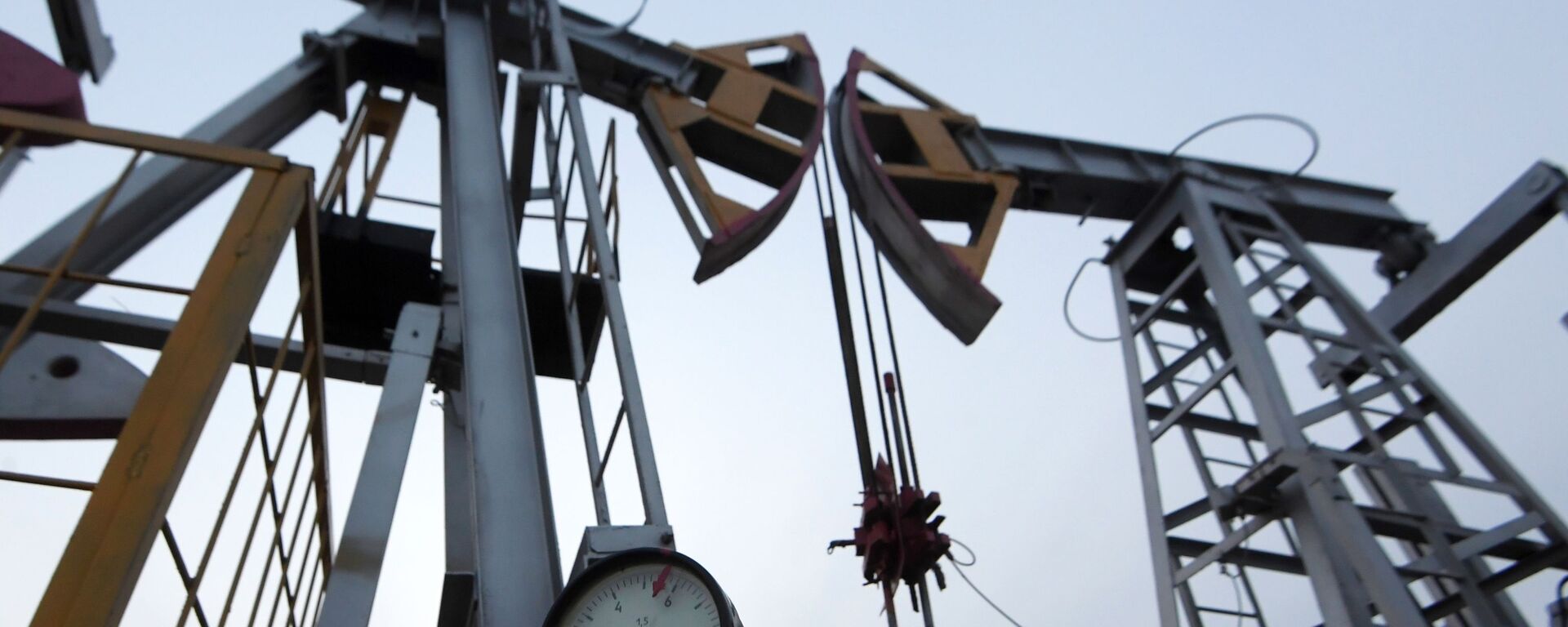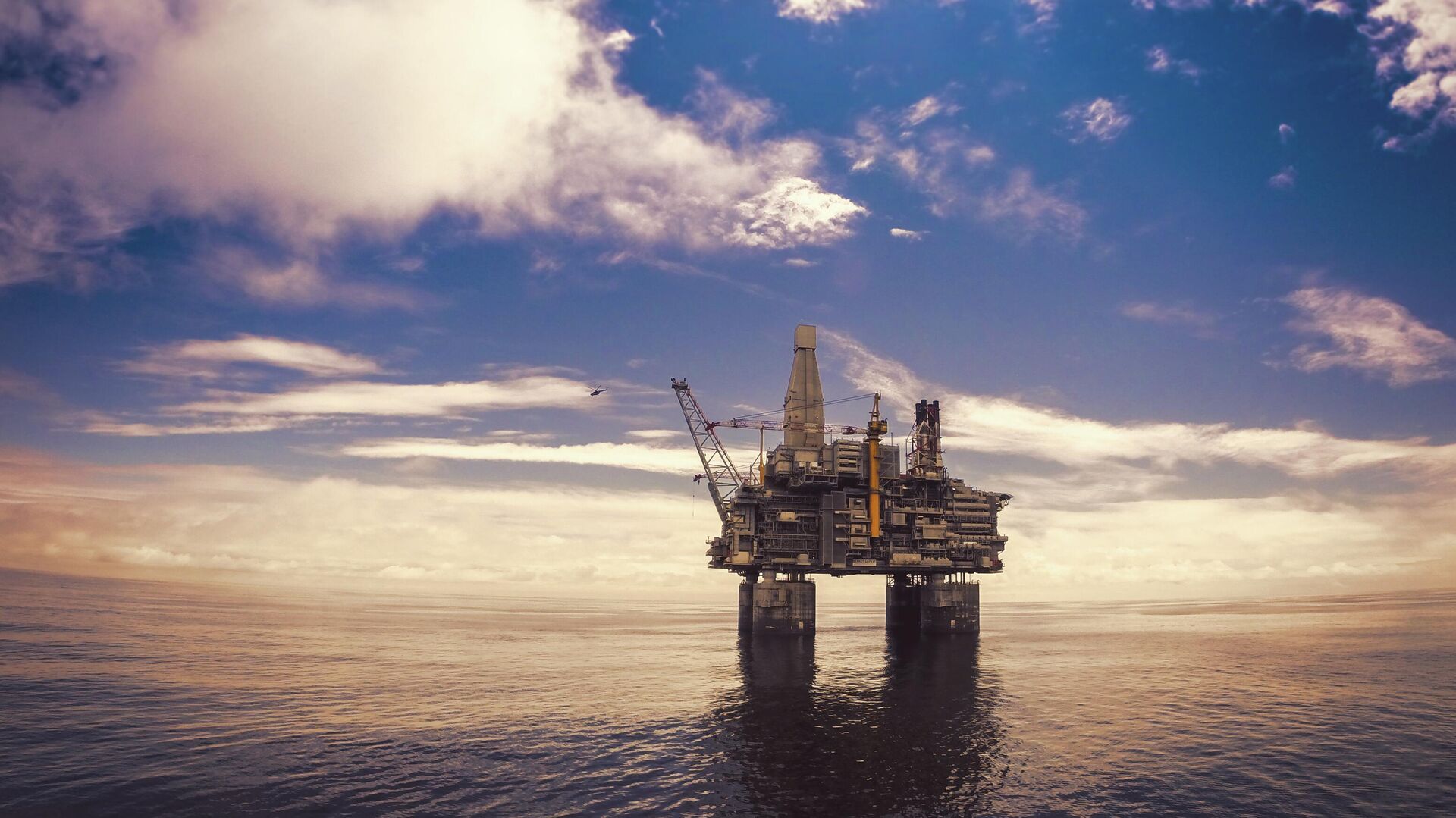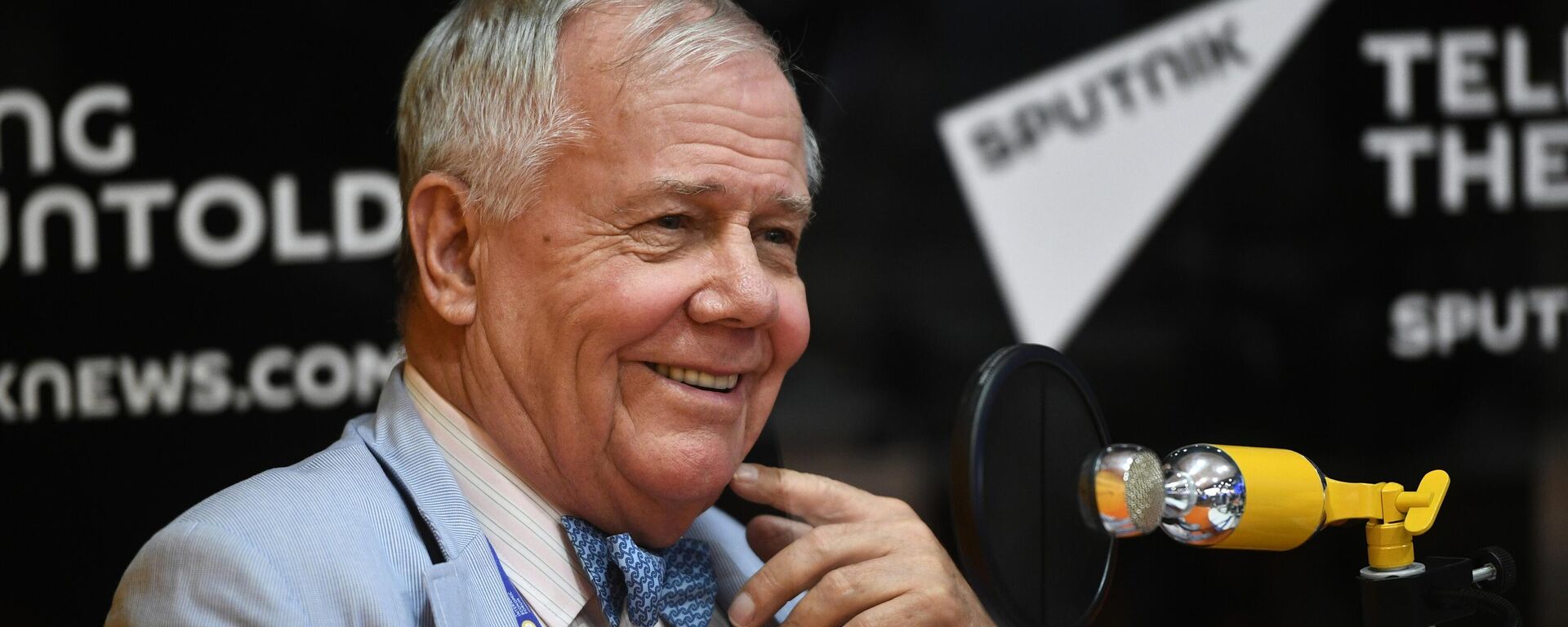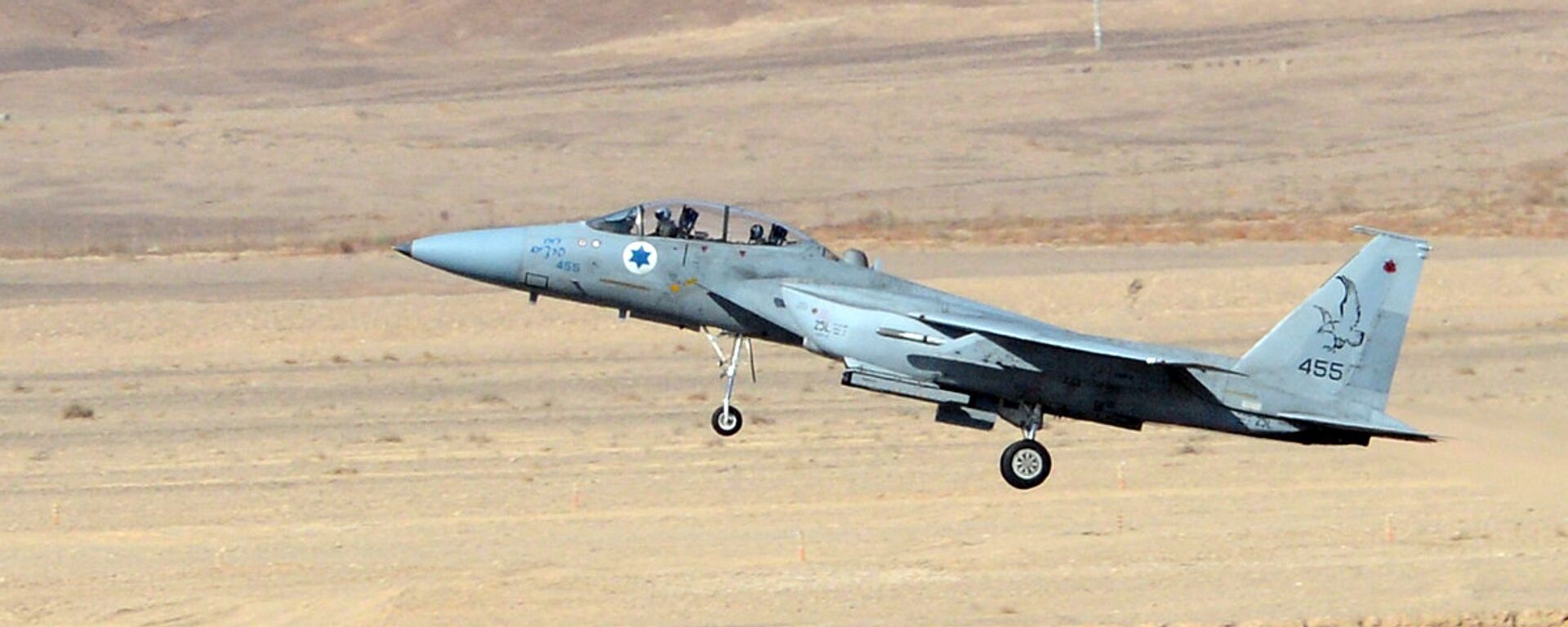https://sputnikglobe.com/20221115/top-five-factors-that-affect-oil-prices-1104224353.html
Top 5 Factors That Affect Oil Prices
Top 5 Factors That Affect Oil Prices
Sputnik International
As the current oil market is in turmoil, what are the top 5 factors that determine the oil prices?
2022-11-15T18:06+0000
2022-11-15T18:06+0000
2022-11-15T18:06+0000
economy
commodities
investor
yom kippur
opec
middle east
oil
oil supplies
high demand
low demand
https://cdn1.img.sputnikglobe.com/img/07e6/0b/04/1103780126_0:151:3103:1896_1920x0_80_0_0_588a21ecd70c7a31a5378b12ca1fdc08.jpg
Oil is at the heart of the global economy and politics. As with any commodity, it is subject to general laws of economics, but it is also highly dependent on the political situation. Currently, the marker is in turmoil. Saudi Energy Minister Prince Abdulaziz bin Salman Al Saud has even stated that the global oil market is in the throes of schizophrenia, citing high volatility and low liquidity. Right now, crude oil prices are hovering around $90 a barrel.So the question is - what factors determine oil prices?SupplyThe bigger the supply, the lower the price, and vice versa. This basic economic rule has remained unchanged since Adam Smith, the father of modern economic theory, identified it. However, the oil market is far from in perfect competition, and supply may be distorted – for instance, for political reasons. Historically, any unrest in the Middle East has led to increasing oil prices since a third of the world's oil is produced in this region. Oil prices skyrocketed during the Islamic revolution in Iran and amid military conflicts, including the Iran-Iraq War and the Persian Gulf War. The shortage of supply may also be a political decision. For instance, when Gulf monarchies – from the major oil-producing countries (Saudi Arabia, Oman, Qatar, Kuwait, the UAE, etc ) - decided to respond to western countries for their stance in the Arab-Israeli conflict in 1973, they imposed an oil embargo, dealing a severe blow to the US economy and pushing it into stagflation.Nonetheless, while oil supply may de-facto remain the same, investor expectations about supply shortage alone may drive prices up.DemandAnother basic rule of economics states that the higher the demand for specific goods, the higher the price, and vice versa. Generally, the demand for oil is stable, but there are exceptions. Investors carefully monitor the situation in major oil consumers, like China. When it became clear that Beijing was going to press on with its zero-Covid policy, oil prices fell because the market realized that China was not going to consume more hydrocarbons. Containment measures introduced by the Chinese government meant a slowdown in production and a shortage of demand for oil. Theoretically, a steady transition to a green economy may lead to a decline in demand for oil, but it is yet to be seen whether this estimation is certain.Investor ExpectationsModern economics accepts the fact that mass psychology plays a major role in markets, including the oil market. Oil can be affected by “self-fulfilling prophecies.” The latter is not an esoteric concept - as it may sound - it is a legitimate economic and sociological idea. Let's presume that investors expect that oil prices will go up for some reason. They will start buying oil in order to sell it later at a higher price. As a result, oil prices increase because of their decision to buy oil. This is why it is important to realize that market beliefs may be even more important than hard facts.Investor expectations are also moderated by the behavior of "market oracles" and key funds. The thing is that investors often suppose that there is someone else who knows better. In the US stock market, many investors try to mimic the decisions of Warren Buffet. For the commodities market (including oil) such a figure is famous investor Jim Rogers. Investors regularly mimic the behavior of big funds. Investment funds usually have dozens of rocket scientists who try to predict market behavior, using advanced math and AI. Their actions and reports are often used as a roadmap for investments. Misinterpreted Data Back in 2013, a historical tweet by the Israeli Armed Forces made oil prices soar. The tweet read: "#YomKippur73: Israel Air Force bombards airports in Syria to prevent Soviet weapons reaching Syrian Army."The tweet was misunderstood, with many investors rushing to think that Israel had attacked Syria. It appears that they failed to notice the hashtag #YomKippur73, which meant that the tweet referred to the events that took place 40 years ago. It was also speculated that the fluctuation in prices was not a human error, but could've been caused by AI, which was triggered by keywords Israel and Syria.Political TurmoilOil prices are highly dependent on the political situation. When Saddam Hussein invaded Kuwait in 1990, oil prices nearly doubled in several months. However, market shocks are not limited to the Middle East or political conflicts. The COVID-19 pandemic also had an impact on the oil market. Containment measures, introduced by governments led to a slowdown in production and global mobility, which resulted in a 30% drop in global demand for oil, according to the International Energy Agency. The crisis around Ukraine also led to increasing oil prices, with sanctions against Russia introduced by western countries leading to an unprecedented energy crisis in the EU and pushing millions of households to the brink of fuel poverty. Despite this, western leaders actively discuss a price cap on Russian oil. A price cap is almost always a bad idea since it distorts market mechanisms and creates a deficit in the commodity. In other words, it will aggravate the situation.
https://sputnikglobe.com/20221029/who-are-the-just-stop-oil-protesters--why-do-they-attack-art-1102761323.html
https://sputnikglobe.com/20220712/us-investor-jim-rogers-says-companies-that-have-left-russia-aid-its-economy-1097212047.html
https://sputnikglobe.com/20220702/damascus-israel-carries-out-rocket-strikes-against-syria-injuring-two-civilians-in-tartus-1096881337.html
https://sputnikglobe.com/20221027/biden-team-reportedly-scaling-back-russia-oil-price-cap-amid-skeptic-investors--volatile-markets-1102747719.html
Sputnik International
feedback@sputniknews.com
+74956456601
MIA „Rossiya Segodnya“
2022
News
en_EN
Sputnik International
feedback@sputniknews.com
+74956456601
MIA „Rossiya Segodnya“
Sputnik International
feedback@sputniknews.com
+74956456601
MIA „Rossiya Segodnya“
why are oil prices going up, what are oil prices today, why are oil prices rising, why are oil prices going up, why are oil prices dropping, what causes oil prices to change
why are oil prices going up, what are oil prices today, why are oil prices rising, why are oil prices going up, why are oil prices dropping, what causes oil prices to change
Top 5 Factors That Affect Oil Prices
Oil is considered to be the “blood” of the international economy since it is used in diverse industries, such as fuel production. Due to its role, oil directly impacts the pace of economic growth.
Oil is at the heart of the global economy and politics. As with any commodity, it is subject to general laws of economics, but it is also highly dependent on the political situation.
Currently, the marker is in turmoil. Saudi Energy Minister Prince Abdulaziz bin Salman Al Saud has even stated that the global oil market is in the throes of schizophrenia, citing high volatility and low liquidity. Right now, crude oil prices are hovering around $90 a barrel.
So the question is - what factors determine oil prices? The bigger the supply, the lower the price, and vice versa. This basic economic rule has remained unchanged since Adam Smith, the father of modern economic theory, identified it. However, the oil market is far from in perfect competition, and supply may be distorted – for instance, for political reasons.
Historically, any unrest in the Middle East has led to increasing oil prices since a third of the world's oil is produced in this region. Oil prices skyrocketed during the Islamic revolution in Iran and amid military conflicts, including the Iran-Iraq War and the Persian Gulf War.
The shortage of supply may also be a political decision. For instance, when Gulf monarchies – from the major oil-producing countries (Saudi Arabia, Oman, Qatar, Kuwait, the UAE, etc ) - decided to respond to western countries for their stance in the Arab-Israeli conflict in 1973, they imposed an oil embargo, dealing a severe blow to the US economy and pushing it into stagflation.

29 October 2022, 14:02 GMT
Nonetheless, while oil supply may de-facto remain the same, investor expectations about supply shortage alone may drive prices up.
Another basic rule of economics states that the higher the demand for specific goods, the higher the price, and vice versa. Generally, the demand for oil is stable, but there are exceptions. Investors carefully monitor the situation in major oil consumers, like China.
When it became clear that Beijing was going to press on with its
zero-Covid policy, oil prices fell because the market realized that China was not going to consume more hydrocarbons. Containment measures introduced by the Chinese government meant a slowdown in production and a shortage of demand for oil.
Theoretically, a steady transition to a green economy may lead to a decline in demand for oil, but it is yet to be seen whether this estimation is certain.
Modern economics accepts the fact that mass psychology plays a major role in markets, including the oil market. Oil can be affected by “self-fulfilling prophecies.” The latter is not an esoteric concept - as it may sound - it is a legitimate economic and sociological idea.
Let's presume that investors expect that oil prices will go up for some reason. They will start buying oil in order to sell it later at a higher price. As a result, oil prices increase because of their decision to buy oil. This is why it is important to realize that market beliefs may be even more important than hard facts.
Investor expectations are also moderated by the behavior of "market oracles" and key funds. The thing is that investors often suppose that there is someone else who knows better.
In the US stock market, many investors try to mimic the decisions of
Warren Buffet. For the commodities market (including oil) such a figure is famous
investor Jim Rogers. Investors regularly mimic the behavior of big funds. Investment funds usually have dozens of rocket scientists who try to predict market behavior, using advanced math and AI. Their actions and reports are often used as a roadmap for investments.
Back in 2013, a historical tweet by the Israeli Armed Forces made oil prices soar. The tweet read: "#YomKippur73: Israel Air Force bombards airports in Syria to prevent Soviet weapons reaching Syrian Army."
The tweet was misunderstood, with many investors rushing to think that Israel had attacked Syria. It appears that they failed to notice the hashtag #YomKippur73, which meant that the tweet referred to the events that took place 40 years ago. It was also speculated that the fluctuation in prices was not a human error, but could've been caused by AI, which was triggered by keywords Israel and Syria.
Oil prices are highly dependent on the political situation. When Saddam Hussein invaded Kuwait in 1990, oil prices nearly doubled in several months. However, market shocks are not limited to the Middle East or political conflicts.
The COVID-19 pandemic also had an impact on the oil market. Containment measures, introduced by governments led to a slowdown in production and global mobility, which resulted in a 30% drop in global demand for oil, according to the International Energy Agency.

27 October 2022, 07:05 GMT
The crisis around Ukraine also led to increasing oil prices, with sanctions against Russia introduced by western countries leading to an unprecedented energy crisis in the EU and pushing millions of households to the brink of fuel poverty.
Despite this, western leaders actively discuss
a price cap on Russian oil. A price cap is almost always a bad idea since it distorts market mechanisms and creates a deficit in the commodity. In other words, it will aggravate the situation.






